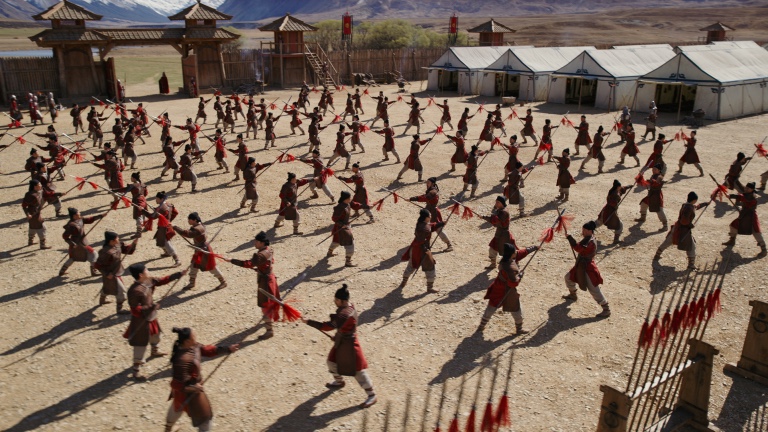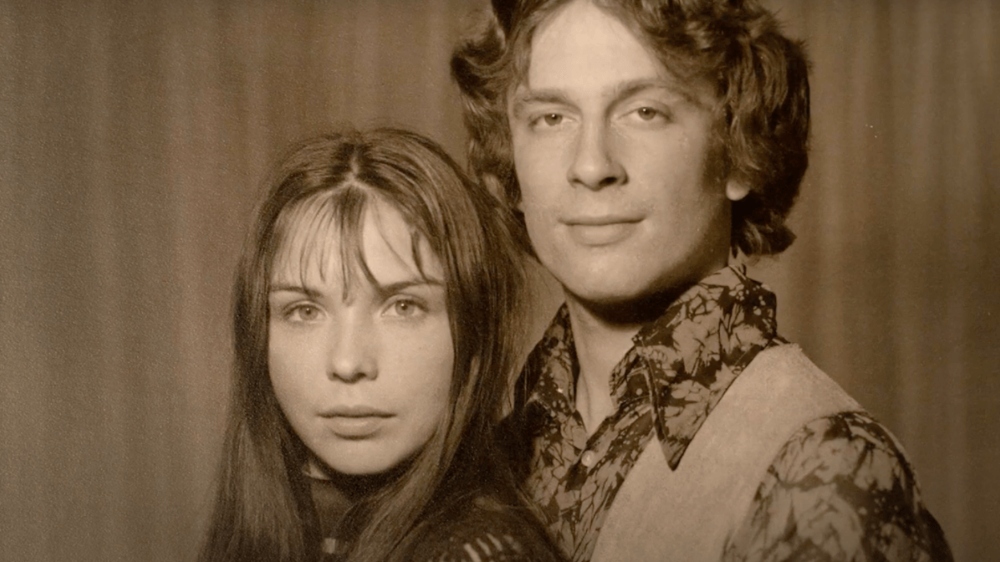
Those who read my Top 10 list last year might recall that my #2 movie of 2021 was the documentary Dear Mr. Brody, which told the incredible story of Michael Brody Jr., a 21-year-old hippie millionaire who in 1970 promised to give away his $25 million inheritance in an effort to usher in a new era of world peace.
Naturally, thousands upon thousands of people were all too eager to write him letters in response to his generous gesture, as they needed money to deal with a variety of individual problems, whether they wanted to go to college, launch their own business, or just buy Christmas presents for their kids.
A Hollywood producer by the name of Ed Pressman (The Crow) was going to make a movie about Brody back in the ’70s, and though it never came to fruition, he got his hands on many of these letters (approximately 32,000), which sat in a storage unit for decades until Pressman’s creative exec, Melissa Glassman, stumbled upon them. Fortunately, Glassman’s college roommate, Sarah Wilson, happened to be married to acclaimed documentary filmmaker Keith Maitland (Tower), and the rest, as they say, is history.
Below the Line recently chatted over Zoom with Dear Mr. Brody director Maitland, who shed more light on the origins of this fascinating documentary and the fate of all the letters that he and his team didn’t have the time to open. He also explained why the film took a while to find distribution after drawing rave reviews from critics while making the festival rounds last year. This is an incredible documentary that had me in tears multiple times, and I hope you’ll seek it out on Discovery+.
In the meantime, please enjoy my chat with Maitland below:
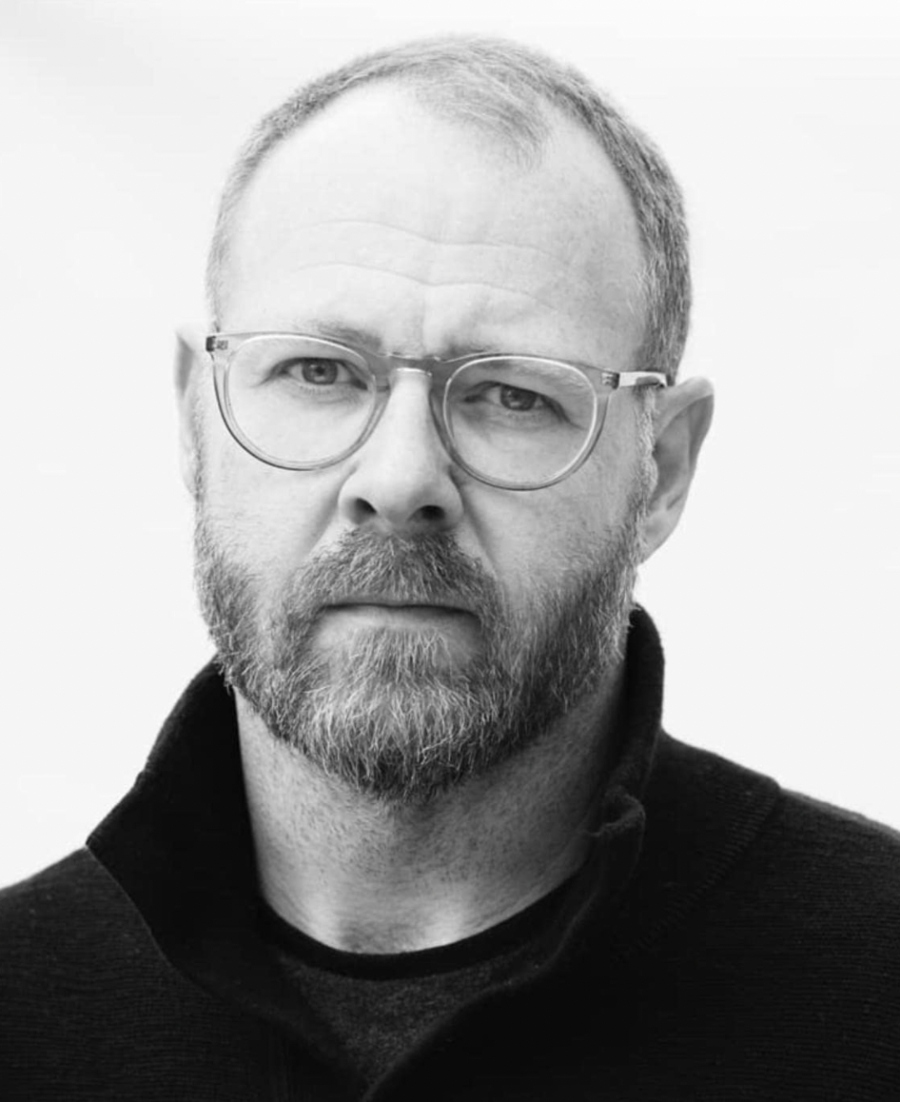
Below the Line: Tell me how you first got involved with this story and what it was about this story that spoke to you?
Keith Maitland: Well the way I got involved is kind of a series of events but it goes back to my wife, who I work with, Sarah Wilson, who is one of my producers and my cinematographer, and her college roommate from NYU 20+ years ago is Melissa Glassman, the woman who discovered the letters. So Melissa and Sarah are just old friends and Melissa discovered the letters as is outlined in the film while she was working for Ed Pressman, and when Melissa found the letters, she was intrigued by them and when she asked Ed about them, Ed told her about his attempts to make a movie in the 70s, which had fallen apart, and Melissa said, ‘well, what if we tried to pick it up now?’ She was his creative exec and head of development.
So in an effort to put together a new project that was a fictional telling of Brody’s story, she reached out to Sarah, my wife, to ask Sarah to photograph a box of letters so Melissa could put together a package to help tell the story to investors and find a screenwriter and all those development steps. So Melissa sends a box of letters to our place here in Austin so Sarah could take pictures and I got a little nosy and looked over Sarah’s shoulder and we started opening letters with Melissa’s blessing, and we were just as drawn into it as Melissa was. The letters were so incredible, they were like reading into somebody’s diary or getting a peek into all these different lives and all these different worlds, and the fact that these letters had been unopened and sitting in a dark box for 50 years just really spoke to me. I think I have a penchant and a love of untold stories and kind of hidden histories, and so I got a little greedy, and with Sarah’s blessing, I reached out to Melissa and said, ‘Mel, I think what you’re doing is great. And you should totally find a screenwriter and make this fictionalized telling. But I have this sense that in the fictionalized account, these boxes of letters would become, at best, part of a montage that showed the volume of reaction, but what we were experiencing and what Melissa had experienced — these very personal interactions, these almost, like, private moments unearthed, they would probably fall by the wayside in a fictionalized telling, whereas in a documentary, we could really explore [them].
You can’t open a letter and read an incredible story and not wonder, ‘what happened to those folks?’ and go to Google and look them up and be heartbroken when you find out they died 20 years ago, or be glad when you see that they overcame their problems and here they are on Facebook and they have a family and grandkids and they just went on a vacation to Florida last month. So that’s the experience we had, just with opening these letters for the first time, so that’s what I pitched to Melissa. I said, ‘what about a documentary that would balance Brody’s incredible story with the thousands upon thousands of stories in these letters. And Melissa took it to Ed, and I was basically coming out of nowhere for Ed Pressman, but this all coincided as we were finishing my previous film, Tower, so literally, the week that Melissa approached Ed about this was the week we premiered at SXSW and we got nice reviews and some awards and Ed, fortunately, said yes.
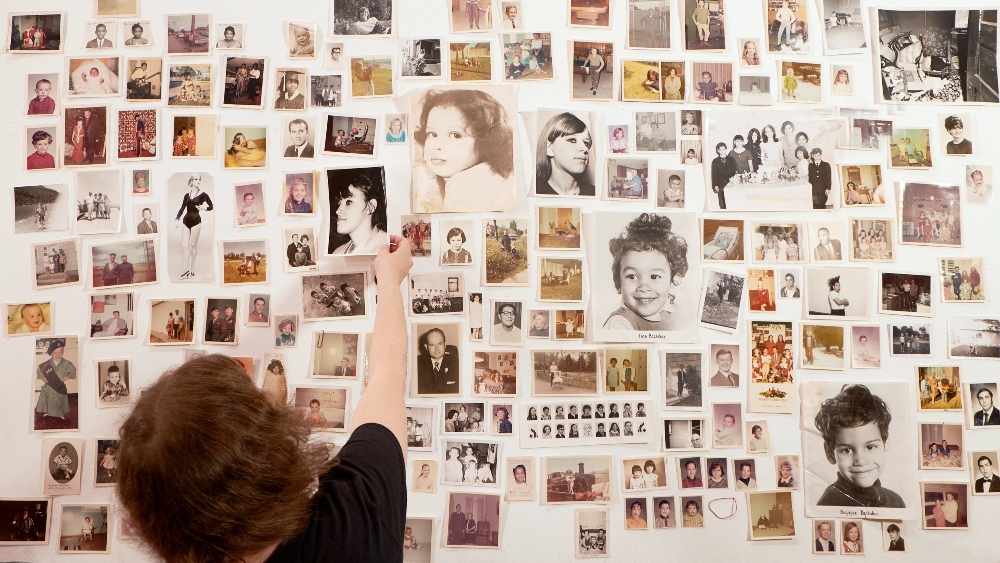
BTL: I love that story. So once you get the greenlight to go the documentary route with this, describe your process. What’s your first step in getting this thing started. I mean, you have the letters so I imagine it’s going down the Brody rabbit hole, no?
Maitland: So the first question is, ‘who is Michael Brody?’ and what can we determine about him? When Melissa discovered the letters, it was now 10 years ago that she first found them, there was almost nothing online about Brody, so she went to the New York Public Library and dug up every newspaper article that she could, so she had made this really great binder of 30 or 40 articles, and that’s what we used as our initial research. And then one day, very early in the process, I remember I was visiting New York and I was on the platform of the subway in Queens, and Melissa texted me and she was like, ‘I just emailed you something. Check it out.’ And it was a little history blog post, maybe three paragraphs on Brody, but in the comments section, someone, an anonymous commenter said, ‘I knew Michael Brody in high school, I’m so glad you’re talking about him.’ And that was anonymous. But the response to him was from somebody named Michael Brody III, and he said, ‘if you knew my dad, I would love to talk with you because I never had a chance to know him myself,’ and that was a big lightning flash for us because it told us that Jamie Brody (Michael Brody III goes by ‘Jamie’) was out there and that he was hungry to know who his dad was, and that’s a great place to start from.
So Melissa and I reached out to Jamie and we went up to Woodstock where he lives with his mother, Renee. They don’t live together but they both live up there. And we took them to lunch and we heard for the first time their story, and they started filling in the blanks for us, and around that same time, or from that time, we found out about both Don Enright, Brody’s high school friend who had written a script about him, so we found out there was another script out there, and then we also found out about Andy Janquitto, who was the author who had written a manuscript called The Oleo Margarine Heir. And he had dedicated himself to really digging into the story. And so suddenly we had a little greek chorus between Don and Andy and first-person participants between Renee and Jamie, and then it was shortly after that that we got our hands on Ed’s letters.
Melissa drove out to LA, loaded the boxes into a van, and drove them here to Austin, and she actually quit her job working for Ed to come here, and she moved in next door to me and Sarah, and the three of us put our heads together along with Tower producer Megan Gilbride, and we just started opening letters. And that became our mission — to open as many letters as we could and to learn as much about Brody as we could. Jamie Brody is credited as a consultant on the film but really he was so much more than that because in his hunger to get to know his father, he had collected every bit of available ephemera tied to that time. He had tracked down most of the footage that is in the film, so Jamie had already identified it before we even came on board. In fact, the script that Ed Pressman had commissioned, Ed had lost 40 years ago. He had no copy of it and Jamie found a copy of that script on eBay. So we reunited Ed with the script that he bought, and then Ed read the script and said, ‘oh, I know why we didn’t make the movie.’ I love being a documentary filmmaker who gets to kind of put on an investigator’s hat. I don’t consider myself a journalist. I would equate our work more to the work of like, a private eye. There were so many people in the letters and in Brody’s story that we were digging around and finding information on who had no idea that we were talking about them behind their backs, sometimes for months or years before we finally reached out to them.
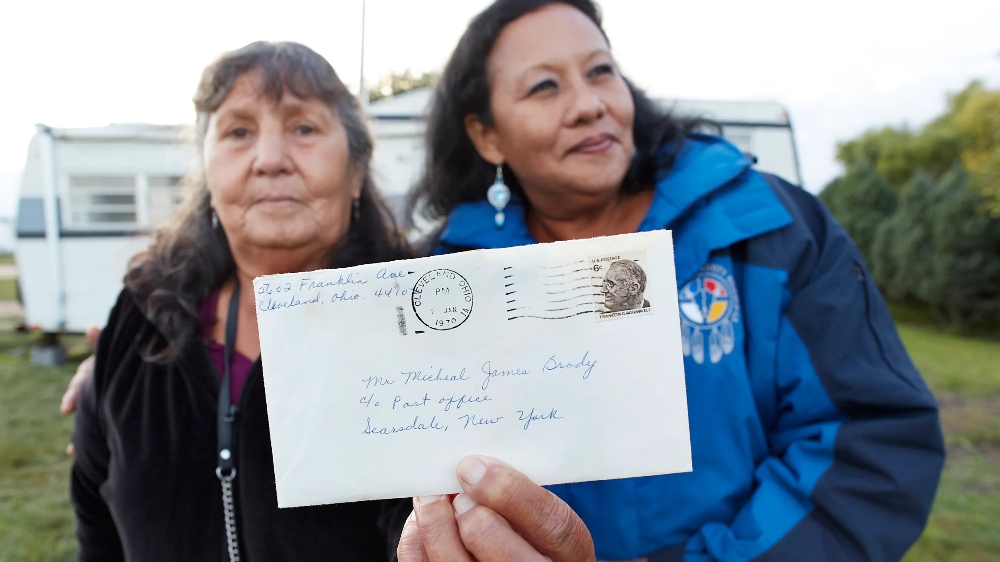
BTL: Were there any letter writers whose stories moved you but you just didn’t have time to include them in the doc?
Maitland: So many. It’s the hardest thing to figure out. But our process was… we reflect it at the end of the film and in the credits, what we always referred to as letter reading parties. We would sit around a big table in our office — mom would come over, Sarah’s parents, Melissa’s mom came down from New York to visit, Megan’s mom came from Virginia, our friends, our colleagues, other filmmakers here in Austin — and we would just open letters and kind of like, honestly just, like, judge them. And even, like, what letters to open was a challenge because there were so many of them. So what we’d do is we’d pick up an envelope kind of feel around, like, ‘does this feel like it has a photograph in it or a newspaper clipping or is there something besides a letter?’ because we always opened those. We came to realize right away that there are a lot of one-page letters that are like one or two lines that are just like, ‘hey, if you’re giving out dough, give me some.’ Those weren’t as impactful.
But when you pick up a letter and you can feel like, this feels like five or six pages, and then you’d open it up and there’d be these novellas, or people would include prayer cards or poetry or artwork, and so many of the letters spoke to us, and we’d basically just read them and if something spoke to me I would put it in one pile and if it didn’t speak to me, I’d put it in another pile, but usually I’d ask somebody else to read the letters that didn’t speak to me just to see if it spoke to them, and vice versa.
And we’d all kind of go around during these parties and just say oh, you’ve gotta hear this. This person’s in a cult and the cult leader is in jail and they need money to bail him out of jail. There were a lot of hippies who wanted money to buy land out west to start a commune. There were a million letters from little kids. I mean, you could really track the trends of the time. There was nothing more valuable to like an 8-14-year-old boy in 1970 than a mini-bike. We have dozens and dozens and dozens of letters asking for money for a minibike. It’s funny because I’m 46, so I was born about five years after all this, but I remember the tail end of the minibike trend from the late 70s, and we’d have interns with us who’d be like, ‘what’s a minibike?’ And then we’d go watch weird YouTube videos of home movies of kids on their little Honda bikes.
So it was a process of give-and-take, but what we would do is, we just had this massive spreadsheet going, and we would identify letters based on the themes of what the letter was about, what they were asking for money for, who they were asking money for, and as we got further into the process of making the film, we realized that the closer the letters could relate to or contrast or bolster what was going on in Brody’s life, the stronger the storytelling would be. And so letters that spoke to us the most for inclusion in the film were letters about sons and daughters and mothers and fathers, about family, love, and loss, about mental health, about drugs. And so because of that, there were so many letters that we didn’t include, that really did speak to us, but they just felt like, a little far afield of our narrow story.
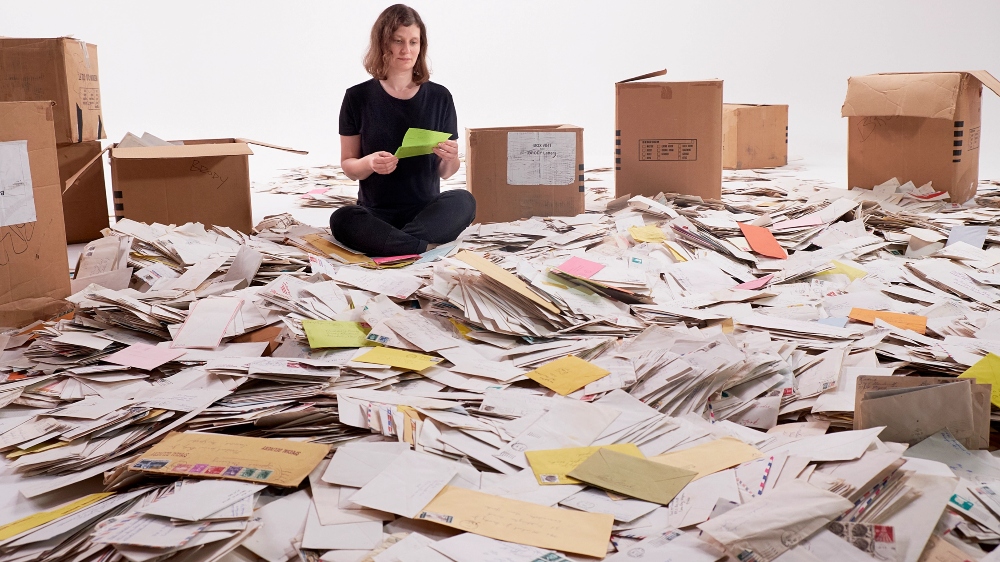
BTL: How many unopened letters remain? Would you say boxes full, still?
Maitland: Still, yeah. I think we estimated at the end… we had about 32,000 letters in Ed’s collection. We opened about 12,000 and change. Of those 12,000, about 1,200 were thoroughly vetted and researched to see who was still around. So there are 20,000 or more that remain unopened from Ed’s collection. And we’ve donated, or Ed’s donated the letters to Columbia University, to their rare books and manuscripts library. And the reason we chose them as an archive was, our first initial thought was, we should donate these to the New York Public Library, or maybe the New York Historical Society, and we reached out and both of those places were totally into it and would’ve taken the letters, but they had this interesting caveat, which was, basically they said, if you give us letters that haven’t been opened yet, they have to remain unopened because everything has to remain archival quality. So they said if you want people to read those 20,000 letters, you have to open them all before you give them.
But we were pretty adamant about this, like, there’s a real joy and, like, a magic and a mystery to being the person who opens the letter. And to us, to just open the letters and pass them along… we knew we didn’t have the time to read 20,000 more letters. So Columbia was the one archive that was willing to allow people who check in to access the archive to have that magical moment of opening the letters. And it’s a destructive process to open a letter but they allowed that so that is our hope is that people will go to Columbia. If you’re in New York and you’re so inclined, go to Columbia — you have to request access but it’s very easy to get approved — and you can sit there and take out a letter opener and open letters. I still believe that the most interesting letters have yet to be opened.
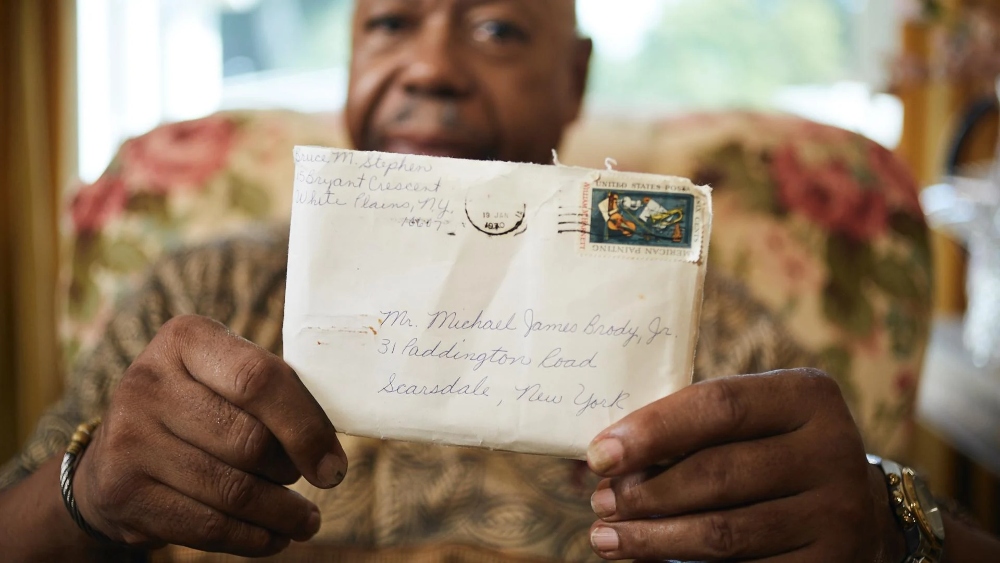
BTL: Why did this movie take a little while to find distribution despite rave reviews from critics?
Maitland: I think it’s a complicated story. The story of Michael Brody himself, I think, in a lot of storytellers’ hands, would’ve been treated as the rise and fall of a con man, but that isn’t the story to us. To us, it was a man with an incredible intention who fell prey to his own ambition, who lacked guidance and lacked a support network, and ultimately suffered at his own hand by suicide because of mental health and drug issues, so it’s a little bit of a downer. I know people were interested in a story that leaned into some of the more salacious elements and cast judgment that me and my team were not comfortable making. It’s just not the kind of filmmaker I am.
And on top of that, the letters themselves are so expansive. This movie doesn’t reveal itself within the first 10 minutes to tell you what it’s going to be and what you should expect. We challenge audiences, I think, to stay with it and to be along for the ride and to be willing to build, constantly evolving throughout the process. So I don’t think it slotted into some of the streaming services’ mandates for a certain type of popcorn experience I think at the expense of the subject is often what I see in what’s popping up, but I can’t speak for them.
BTL: Is there a billionaire you could imagine doing something like this or would it be impossible in the age of social media?
Maitland: Mackenzie Scott, Jeff Bezos’ ex-wife, has given away more in the last year than you or I will ever conceive of making in our lifetimes. I mean, I don’t know you well enough but we both have the same mini split [air conditioning unit] in our place, so I think I know. So yes, I think there are people out there who are doing this work, but they’re not doing it the way he did it, thankfully. I wish there was somebody who had approached Brody early on in his big idea and said let’s get an accountant on the job, let’s get the lawyers lined up, and do this thing right. We wouldn’t have a film, probably, but maybe he would’ve made more of an impact with his giving.
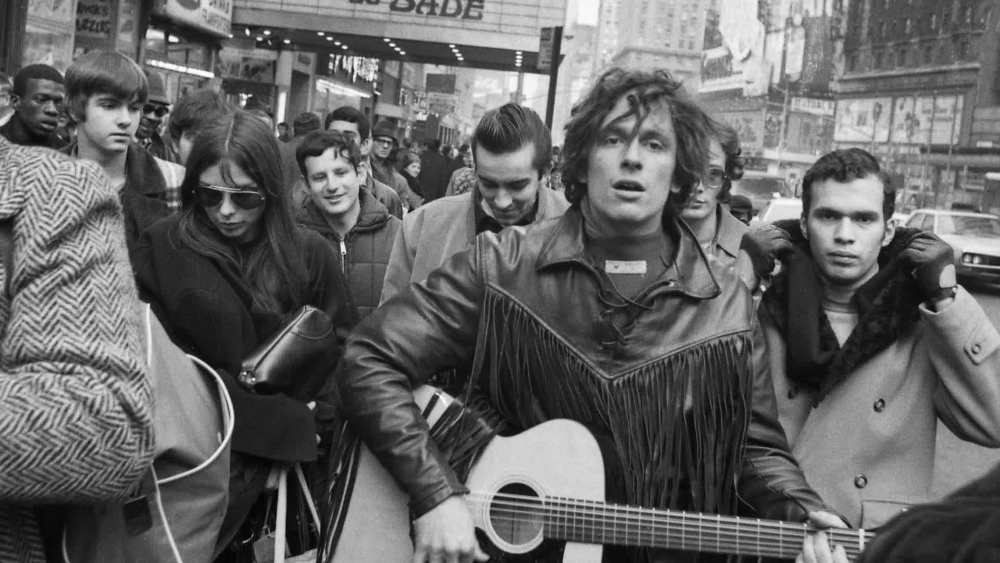
BTL: If this did go the narrative feature route, who would you cast as Michael Brody?
Maitland: It’s a good question, and I think in order to do it justice, you’d want to come up with a complete unknown, but nobody trusts me to package these things, so if I was the smart people in Hollywood, Timothée Chalamet is a pretty good match for Brody. Somebody mentioned Tom Holland, to us recently. Ten years ago, Shia LaBeouf had the kind of manic energy that you might lean into on a project like this.
BTL: Before I let you go, was there a key below-the-line contributor you’d like to single out for a little love.
Maitland: Oh yeah, so many. I’d say the film works, if it works, it works because of the tireless energy and efforts of our editor, Austin Reedy. Finding the balance in so many different threads of story is an incredible task and Austin was more than up to it. The music in the film is absolutely one of my favorite elements, and that’s a composer named Osei Essed. Osei and I have collaborated a few times now, just as Austin and I have, and the process of writing music together and integrating music into the visuals is something I think that goes overlooked by a lot of audience members, but it blows me away, his creativity and what he does to build on what I start from.
And then at the end of the day, the team that I work with — Sarah Wilson, Megan Gilbride, and Melissa Glassman. I end up with more credit than I deserve, always, and it’s because of the energy and impact that those three incredible producers have on me. I’m just excited that audiences will see this film on Discovery+ and I think it’ll be a different audience than the festival world that we’ve been in.
Dear Mr. Brody is now streaming on Discovery+.





